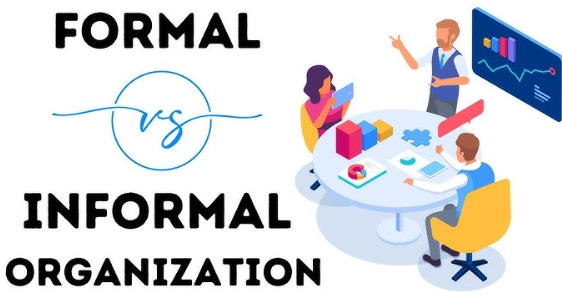Understanding the Differences Between Facebook Groups and Facebook Pages
Introduction to Facebook Groups and Pages
Facebook serves as a versatile platform. It hosts various features designed to connect users in unique ways. Among these, Facebook groups and Facebook pages stand out. They are essential tools for interaction, engagement, and community building. Both features cater to different objectives and target audiences. They address the distinct needs of Facebook users.
Facebook groups are designed primarily to foster community and interactive discussions among people with shared interests. They allow members to engage in conversations, share content, and collaborate on common topics. Groups focus on participation, offering a more intimate environment. Users can create posts, ask questions, and initiate debates. Groups typically centre around a specific theme or topic. They can be public, closed, or secret, allowing for varying levels of privacy and access. The original intent behind groups was to build a sense of community and connection. It enabled more organic interactions among members.
On the other hand, Facebook pages serve as a public presence for businesses, brands, artists, and public figures. They function as a digital storefront or information hub. Entities can showcase products, share updates, and connect with a broader audience. Unlike groups, pages are generally more promotional. They provide a platform for one-way communication from the entity to its followers. Pages can be liked and shared, allowing for greater visibility within the Facebook ecosystem. The original purpose of Pages was to provide a distinct avenue for organisations to engage with their audience. Pages promote brand awareness and customer loyalty.
In essence, while both Facebook groups and pages serve valuable roles within the Facebook community, their uses diverge significantly. Groups emphasise interaction and community building. Pages focus on brand promotion and information dissemination. They cater to varying user needs.
Key Features of Facebook Groups
Understanding the Core Features of Facebook Groups
Facebook groups offer a range of features designed to facilitate community engagement, foster discussions, and enable interactions among members. One of the most defining characteristics of groups is their privacy settings. Admins can choose from three options: public, closed, or secret. Public groups are visible to everyone, including non-members. Closed groups require approval for joining. This keeps content open only to those within the group. Secret groups ensure complete confidentiality, limiting visibility to the members alone. This adaptability in privacy allows users to select the level of openness they desire for their community.
Member Interaction and Engagement in Facebook Groups
Member interactions are another hallmark of Facebook groups. Members can post content, comment on others’ posts, and react to shared media. This promotes active participation. Often, groups serve as platforms for discussions around specific interests. These may include hobbies, professional fields, or local events, creating a sense of belonging among members. Furthermore, the option to create sub-groups within a larger group allows for focused discussions on particular topics. It helps avoid overwhelming the main conversation.
Management Tools for Facebook Group Admins
Facebook provides several tools for moderators and admins to manage their groups effectively. Features such as member management allow admins to approve new requests and remove members if necessary. Moderation tools enable the enforcement of guidelines. Admins can delete posts, ban users, or restrict certain activities. These functionalities contribute to maintaining a positive environment for all members. Typical uses for Facebook groups range from support networks and educational forums to hobbyist communities and local neighbourhood connections. By leveraging these features, users can create engaging, supportive, and dynamic online spaces tailored to their needs.
Key Features of Facebook Pages
Overview of Facebook Pages and Their Benefits
Facebook Pages serve as a vital platform for businesses, public figures, and organisations. They offer unique features tailored for broader audiences and formal engagements. One of the primary advantages of a Facebook page is its branding opportunities. Businesses can design their pages with custom cover photos, profile pictures, and strategic layouts. These elements align with their brand identity. This visual representation fosters recognition and trust. It is essential for attracting potential customers and building a loyal community.
Analytics and Insights for Facebook Pages
Another crucial aspect of Facebook Pages is the provision of analytics and insights. Administrators can access valuable data regarding audience demographics, post engagement, and reach. This analytical capability enables businesses to refine their marketing strategies. It allows them to respond effectively to audience preferences and engagement patterns. By leveraging these insights, organisations can enhance their content and campaigns. They can tailor these to specific audience segments, optimising their overall online presence.
Promotional Tools for Facebook Pages
Promotion tools are also a noteworthy feature of Facebook Pages. Unlike groups, pages can create ads and sponsored content. These ads reach a larger and more targeted audience. This functionality helps drive traffic, increase brand visibility, and convert engagements into actionable outcomes, such as sales or sign-ups. Furthermore, pages are designed to facilitate public interactions. They encourage open dialogue and feedback. While groups focus on community discussions, pages allow for formal communications. They enable businesses to share announcements, promotions, and updates that can be easily disseminated to a wider audience.
How Facebook Pages Contribute to Effective Marketing
Overall, the features unique to Facebook Pages contribute significantly to effective marketing and customer engagement for businesses and organisations. Their ability to provide in-depth analytics, branding opportunities, promotional tools, and public interaction capabilities distinguishes them from Facebook groups. This makes them an essential component of a comprehensive social media strategy.
When to Use a Facebook Group vs. a Facebook Page
Choosing Between Facebook Groups and Pages Based on Your Goals
The decision to utilise a Facebook group or a Facebook page largely depends on the goals and objectives of the user. This applies whether they are individuals, businesses, or organisations. Both tools offer distinct functionalities that cater to different requirements. Understanding when to apply each can significantly affect online engagement and community-building efforts.
When to Use Facebook Groups for Community Building
Facebook groups are ideal for fostering community and interaction among members. They are particularly beneficial when the primary goal is to encourage discussion and collaboration. For instance, a small local business may choose to create a Facebook group. It helps them engage with customers more personally. Here, users can share experiences, ask questions, and offer feedback. This creates a sense of belonging and loyalty among participants. A classic example is support groups, where individuals facing similar challenges can connect. They can share resources and provide mutual support.
When to Use Facebook Pages for Brand Promotion
Conversely, Facebook Pages serve as robust platforms for brand promotion and outreach. Organisations aiming to showcase their products, share news, or promote events will find Facebook Pages more suitable. A well-structured Facebook page allows users to highlight their offerings, run targeted advertising campaigns, and provide essential information such as contact details and business hours. For instance, a non-profit can utilise a Facebook page. It helps raise awareness about its mission, share updates on initiatives, and drive fundraising efforts. The focus here is primarily on broadcasting information rather than facilitating two-way communication.
Leveraging Both Facebook Groups and Pages for Comprehensive Outreach
Ultimately, leveraging both platforms can yield remarkable results. An organisation might maintain a Facebook page for formal announcements. It can use a group to engage more deeply with its audience. This dual approach allows for comprehensive outreach and community interaction. It caters to a broad spectrum of engagement strategies.



